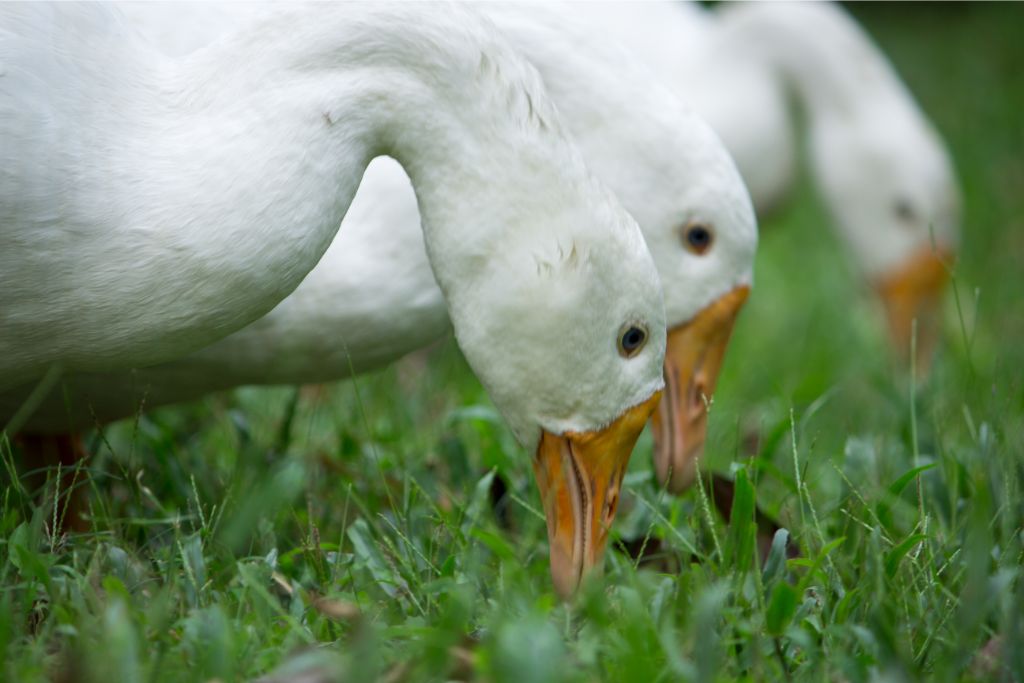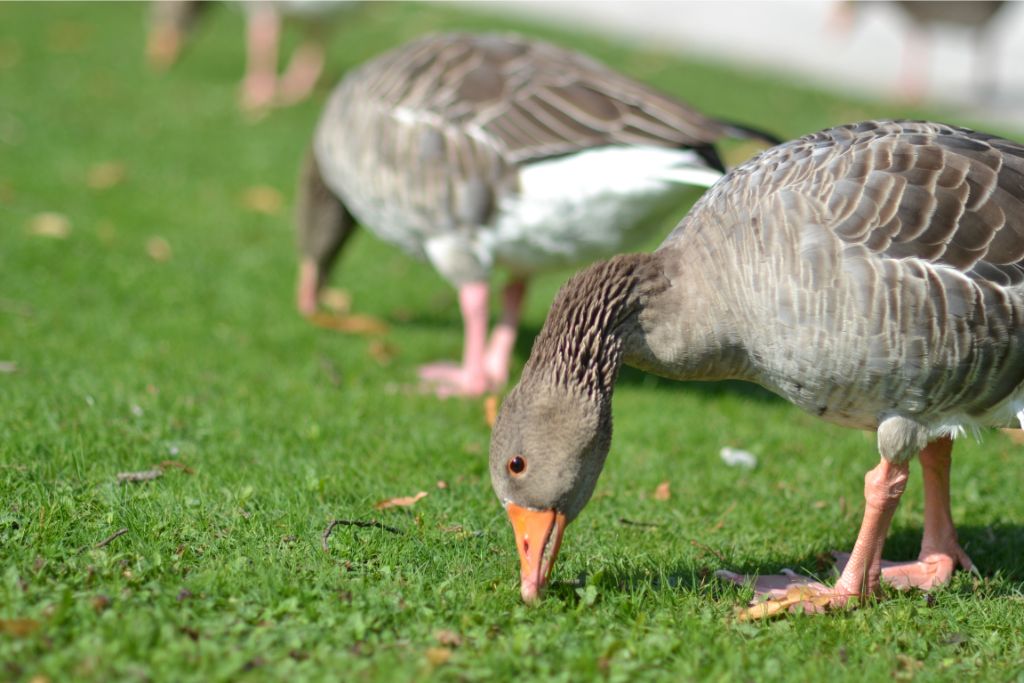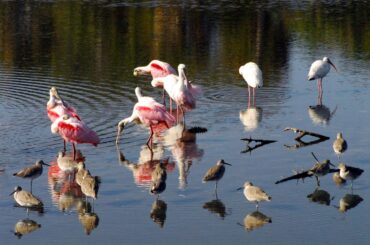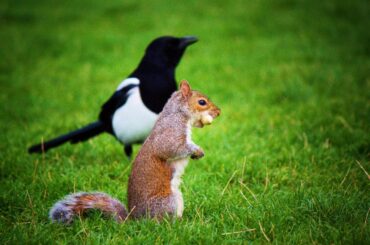Are you curious if ducks can munch on cucumbers? Wondering how a duck’s diet works and what’s safe for them to eat? In this comprehensive guide, learn about ducks’ diets and if cucumbers are good treats.
First, we’ll talk about what ducks consume and how their diet differs from that of other birds. Then delve into the safety of feeding ducks cucumbers, exploring potential benefits and risks. Unravel the mystery of ducks and cucumbers together!
Can Ducks Eat Cucumber?

Yes, they can! Ducks can enjoy cucumber as a tasty and healthy treat. Cucumbers are made up of mostly water, which helps keep ducks hydrated. They also contain essential vitamins and minerals that are good for duck health.
Ducks get vitamins C and K from cucumbers, strengthening and conditioning their feathers. However, ducks should eat cucumbers in moderation since they need a balanced diet with grains and vegetables.
It’s preferable to feed ducks cucumber slices as a little supplement to their regular diet. This lets them enjoy cucumber’s crispness without sacrificing nutrition.
The Duck Diet: What Ducks Typically Eat
To keep ducks healthy, they must recreate this balanced diet when feeding them in captivity. Here are what ducks typically eat:
- Aquatic Plants: Aquatic plants, such as duckweed, water lilies, and pondweeds, are ducks’ favorites. These leafy greens provide them with vital nutrients and fiber.
- Insects: Ducks are natural insect hunters. They enjoy munching on insects, such as mosquitoes, dragonflies, and beetles, which make up a significant part of their diet.
- Small Fish: Fish, like minnows and small carp, are also on ducks’ menu. They offer a protein boost, helping these waterfowl grow and maintain their energy levels.
- Crustaceans: Ducks may occasionally indulge in tiny crustaceans, like shrimp or crayfish, when they’re available in their environment.
- Seeds and Grains: In areas with plentiful farmland, ducks will scavenge for grains and seeds. They’ll happily nibble on corn, wheat, and other grains.
- Algae: Algae and phytoplankton are another source of sustenance for ducks. These tiny organisms are abundant in many bodies of water and serve as a nutritious snack.
Potential Benefits of Feeding Cucumbers to Ducks

Here are the vitamins and minerals found in cucumbers:
- Vitamin K: Vitamin K is abundant in cucumbers, essential for proper blood coagulation. For ducks, this nutrient helps in wound healing and overall health.
- Vitamin C: For a strong defense system, vitamin C is essential. Like people, ducks can benefit from the immune-boosting qualities of cucumbers.
- Potassium: Cucumbers contain potassium, which helps regulate muscle and nerve function. Ducks need potassium to maintain their physical well-being.
- Magnesium: This is crucial for ducks’ muscles and nerve function, as well as bone health. Cucumbers provide a source of this essential mineral.
- Hydration: Cucumbers are mainly water, helping ducks stay well-hydrated, especially during hot weather. Proper hydration is essential for their digestion and overall vitality.
Risks and Concerns
Ducks should eat cucumbers sometimes, but not daily. They require a variety of foods in order to meet their nutritional requirements.
- Digestive Problems: Ducks’ stomachs are sensitive. If they eat too many cucumbers, they could get sick. Cucumbers should be served in moderation.
- Lack of Variety: While cucumbers have benefits, they should be part of a diverse diet. Feeding ducks only one type of food, like cucumbers, can result in nutritional deficiencies. Make sure to provide a variety of foods to meet their dietary needs.
- Pesticides and Chemicals: Be cautious when feeding ducks cucumbers from your garden or store-bought ones. Pesticides and chemicals on the skin may be harmful to ducks. It’s best to wash cucumbers thoroughly or opt for organic ones.
- Competition for Nutrients: Ducks may fill up on cucumbers, leaving less room for other necessary foods, potentially leading to nutrient deficiencies.
How to Feed Ducks Cucumber Safely
When offering cucumbers to ducks, it’s essential to do it in a way that ensures their safety and enjoyment. Here are some guidelines to follow when serving cucumbers to these feathered friends:
- Wash Thoroughly: Before offering cucumbers to ducks, wash them well to remove any potential pesticides or contaminants. Clean cucumbers are crucial for safe consumption.
- Cut into Bite-Sized Pieces: Because duck beaks are tiny, it’s best to cut cucumbers into pieces that are easy for them to handle, making It easier for them to eat without choking.
- Offer in Moderation: While cucumbers can be a healthy addition to a duck’s diet, remember that moderation is key. Ducks should have a balanced diet with various food items to ensure their nutritional needs are met.
- Freshness Matters: Ensure the cucumber is fresh and not overripe or spoiled. Ducks can get sick from consuming moldy or rotten food.
- Watch Their Response: Ducks have individual preferences. Observe how the ducks respond to cucumbers. If they show little interest, it’s best to adjust their diet accordingly.
Other Foods Ducks Can Enjoy

Due to their varied tastes, ducks require various diets to maintain good health and happiness. Here are some options for nutritious treats that ducks can enjoy:
- Leafy Greens: Offer leafy greens, like lettuce, spinach, and kale for added vitamins and fiber.
- Corn: Whole or cracked corn is an excellent energy source for ducks. It’s a favorite treat among many duck species.
- Peas: Fresh or frozen green peas are a great source of protein for ducks.
Foods to Avoid
While ducks are omnivores, it’s essential to keep them away from these forbidden foods. Find out what you should never feed ducks and why.
- Bread: Contrary to popular opinion, bread is not an appropriate diet for ducks. It’s unhealthy because it’s devoid of vital nutrients. Bread for ducks could lead to water contamination and starvation.
- Processed Snacks: Avoid giving ducks processed or salty snacks, like chips and crackers. These can harm their digestive system and lead to obesity.
- Junk Food: Ducks should never consume sugary or high-fat foods, like candy or fast food. They might get sick from these things, and they don’t have any nutritional value.
- Spoiled or Moldy Food: Ducks can get sick from eating food that has gone bad or grown mold. Always offer fresh and clean food.
Final Thoughts
Ducks can indeed eat cucumbers in moderation. Cucumbers are nutritious, but they should be part of a varied diet. Although cucumbers have a pleasant flavor, they are not a sufficient diet for ducks.
We must feed ducks a variety of tempting and nutritious goodies to keep them healthy and happy. A balanced diet gives ducks the nutrients they need to grow and stay healthy.
FAQs
What are Ducks Allergic to?
Although ducks can have food or chemical allergies, this is uncommon. Fresh, uncontaminated food is vital in case they are sensitive to rotten or moldy items.
What Do You Feed a Sick Duck?
When a duck is sick, a vet can offer treatment. Provide tiny portions of their regular food and fresh water to keep them hydrated.
What is a Duck’s Favorite Food?
Ducks enjoy a variety of foods, but their preferences can vary. Many ducks like grains, such as cracked corn, and small insects, like mealworms. It’s essential to offer a balanced diet.
Can Ducks Eat Bread?
Ducks can eat bread, but it’s not a nutritious or healthy choice for them. Bread lacks essential nutrients and can lead to health issues. It’s better to offer other foods, like grains, vegetables, and insects.
What Vegetables Can Ducks Eat?
Ducks can eat various vegetables, including leafy greens, like lettuce and spinach, peas, corn, and chopped carrots. Make sure to offer vegetables in small, manageable pieces and in moderation to maintain a balanced diet.





